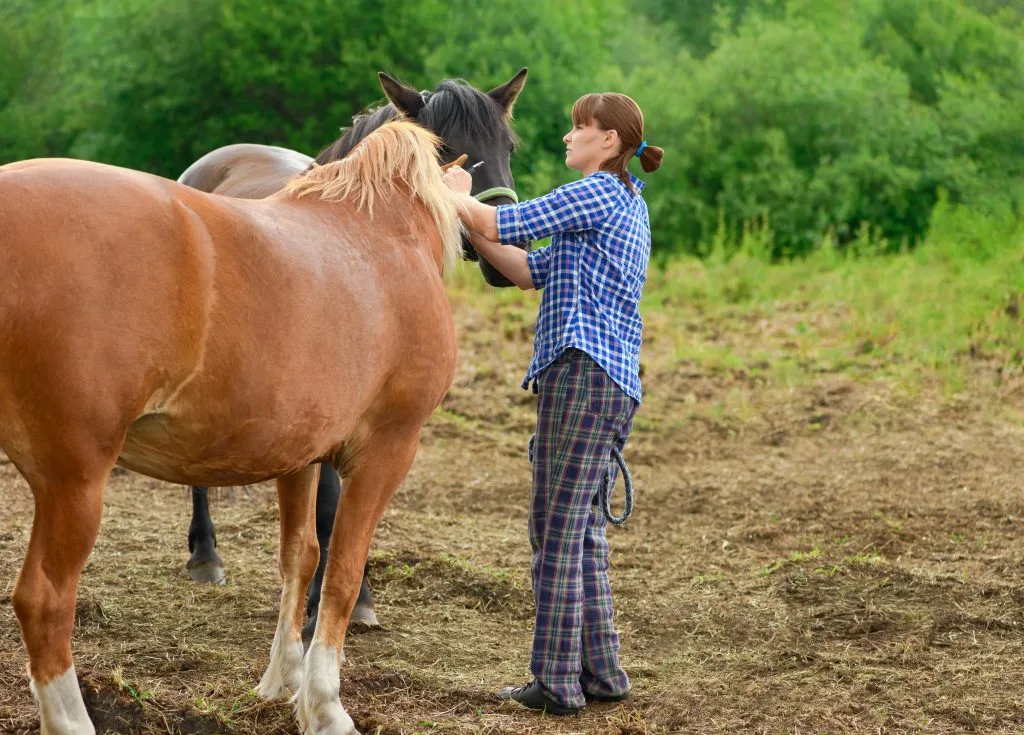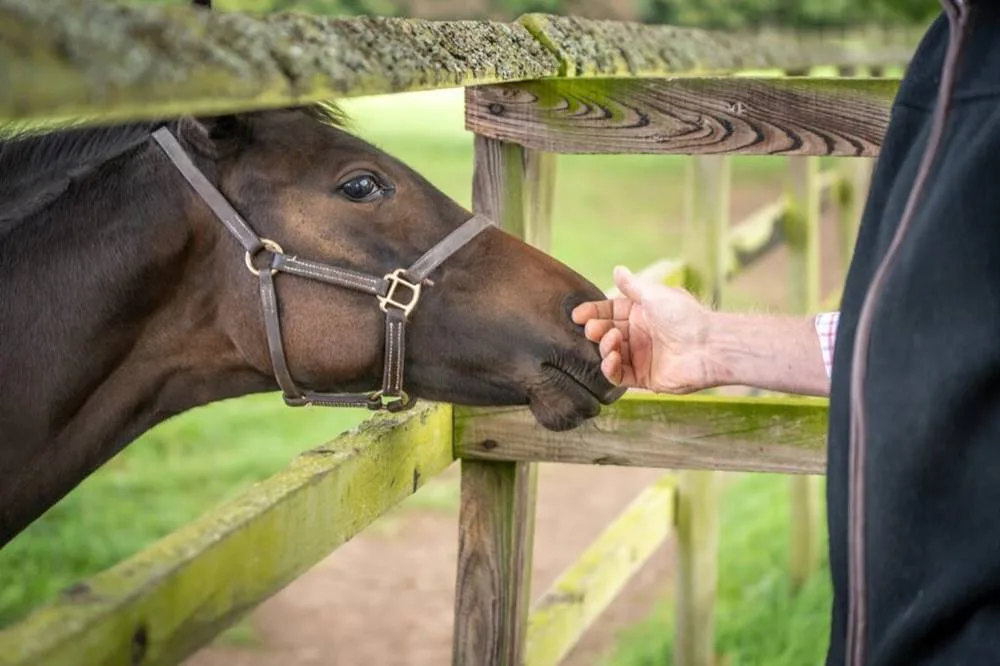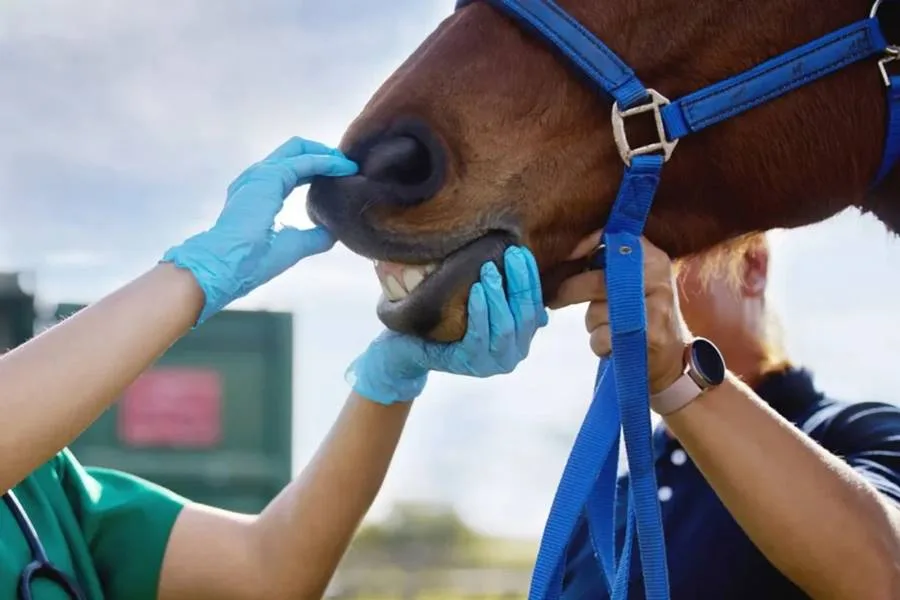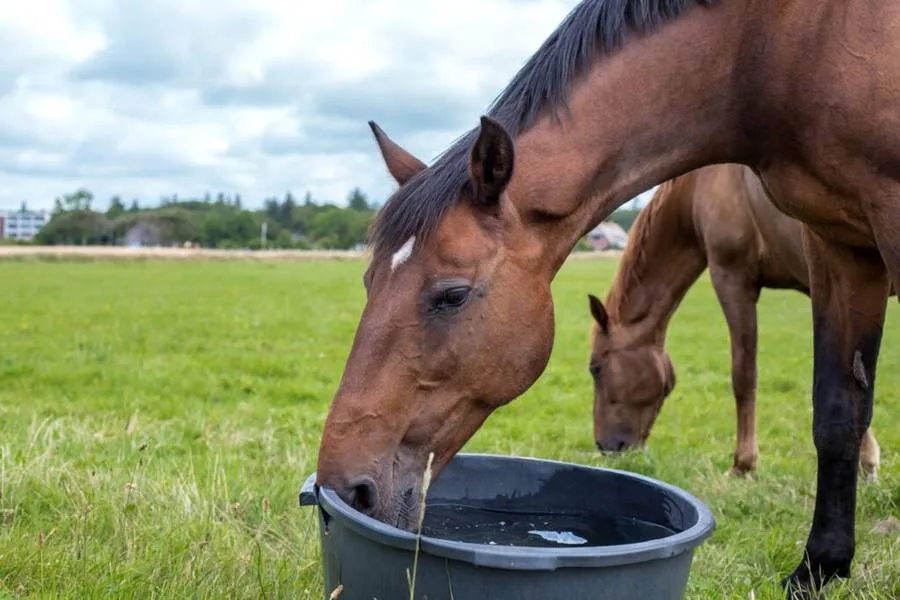Taking care of a horse is both a joy and a big responsibility.
Horses rely on their humans for more than just food and water — they need consistent grooming, a proper diet, and regular health checkups to stay in top shape. Here’s a simple guide to the daily care essentials every horse owner should know.
1. Daily Grooming Routine
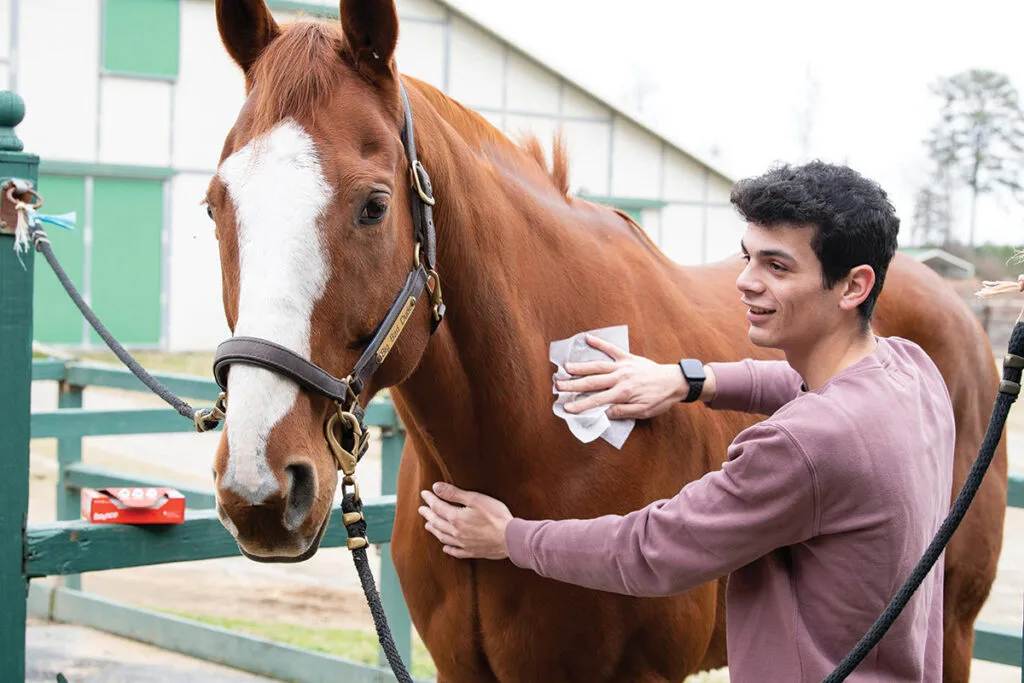
Grooming is more than just keeping your horse looking good — it helps with circulation, muscle tone, and lets you spot any cuts, bumps, or irritations early on.
Basic Grooming Tools:
- Curry comb
- Hard brush (dandy brush)
- Soft brush (body brush)
- Hoof pick
- Mane & tail comb
- Sponge or cloth
🕒 Daily Grooming Steps:
| Step | Purpose |
|---|---|
| Curry comb | Loosens dirt and hair, stimulates skin |
| Hard brush | Removes mud and debris from body |
| Soft brush | Smooths the coat, used on sensitive areas |
| Hoof picking | Removes stones, manure, and checks for thrush |
| Mane and tail combing | Prevents tangles and distributes natural oils |
| Wipe face and eyes | Gently cleans any discharge or dirt |
💡 Tip: Groom before and after riding to avoid saddle sores and keep the coat healthy.
2. Feeding Schedule & Nutrition
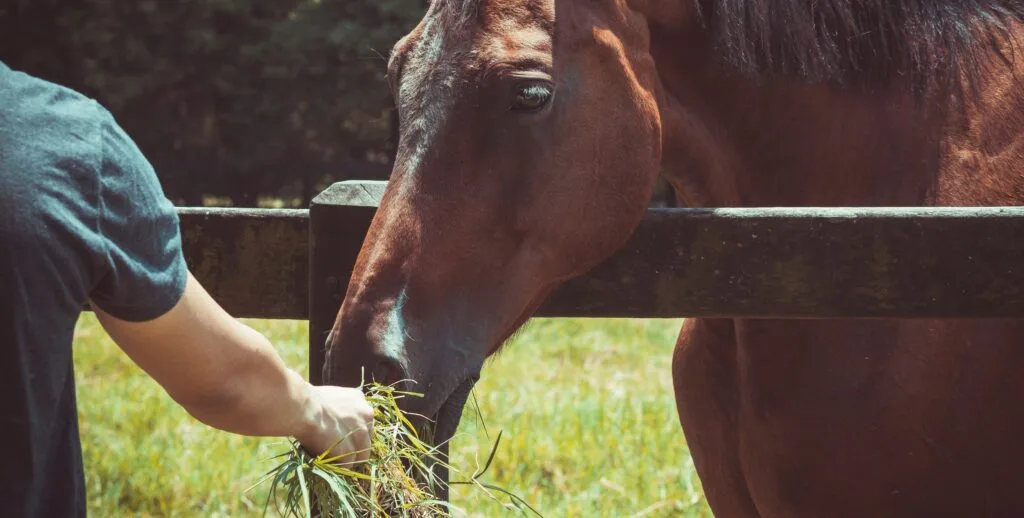
A healthy horse starts with a well-balanced diet. Horses are natural grazers and need access to forage (like hay or pasture) most of the day to keep their digestive system working properly.
Basic Diet Components:
| Feed Type | Description |
|---|---|
| Hay/Pasture | Main food source; should be clean and mold-free |
| Grain/Concentrates | Optional; used for extra energy in working or growing horses |
| Salt & Minerals | Provide access to a salt block or mineral lick |
| Fresh Water | Clean, cool water available at all times |
Sample Feeding Schedule:
| Time | Activity |
|---|---|
| 7:00 AM | Morning hay + grain (if needed) |
| 12:00 PM | Turnout grazing or lunch hay |
| 5:00 PM | Evening hay + grain |
| Night | Fresh water refill and snack hay |
💡 Tip: Feed by weight, not volume, and make diet changes slowly to avoid colic.
3. Daily Health Checks
Keeping an eye on your horse’s health each day can prevent minor issues from becoming major problems.
What to Check Daily:
| Area | What to Look For |
|---|---|
| Eyes & nose | Clear, no excessive discharge or swelling |
| Legs & hooves | Cuts, swelling, heat, or lameness |
| Coat & skin | Shine, no bald spots, rashes, or parasites |
| Behavior | Alert, eating normally, no unusual behavior |
| Manure & urine | Normal color, consistency, and frequency |
Basic Vital Signs (to know for emergencies):
| Vital Sign | Normal Range |
|---|---|
| Temperature | 99–101°F (37.2–38.3°C) |
| Pulse (resting) | 28–44 beats per minute |
| Respiration | 10–24 breaths per minute |
| Capillary refill | Under 2 seconds (gum test) |
💡 Tip: Keep a horse first-aid kit on hand and know your vet’s emergency number.
4. Clean Living Environment
A clean and safe environment plays a big part in your horse’s health.
Daily Stable Tasks:
| Task | Why It Matters |
|---|---|
| Muck out stall | Prevents bacteria and hoof issues |
| Refill water | Horses need constant access to fresh water |
| Check fencing | Broken fencing can lead to injury or escapes |
| Sweep barn area | Reduces flies, rodents, and hazards |
💡 Tip: Good ventilation in stables reduces respiratory problems.
5. Bonding and Mental Health
Horses are social animals and need attention beyond just care. Spend time with your horse daily — not just riding but also talking, petting, or just being near them.
Ways to Build a Bond:
- Hand walking
- Groundwork or light training
- Grooming sessions
- Treats (in moderation!)
Horses thrive on routine, kindness, and respect — the more time you spend with your horse, the stronger your relationship will become.
Summary: Daily Horse Care Checklist
| Daily Task | Purpose |
|---|---|
| Grooming | Cleanliness, health check, bonding |
| Feeding | Nutrition and digestive health |
| Fresh Water | Essential for hydration |
| Health Monitoring | Prevent illness and injury |
| Stall or paddock cleaning | Sanitation and safety |
| Social interaction | Mental well-being |
Final Thoughts
Daily horse care may seem like a lot at first, but it quickly becomes part of a rewarding routine. These tasks not only keep your horse healthy — they also build trust and connection. A well-cared-for horse is a happy one, and their loyalty in return is truly one of the best parts of horse ownership.

